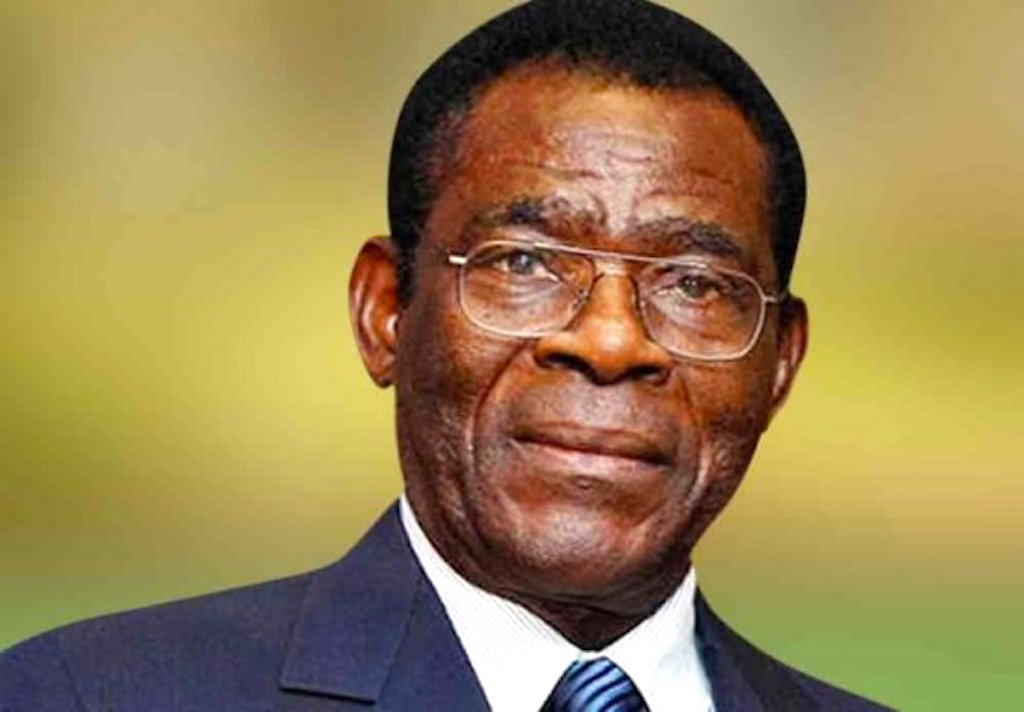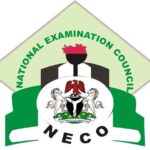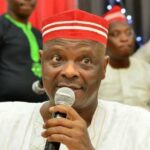The Equatorial Guinea Electoral Commission has announced the re-election of 80-year-old President Teodoro Obiang Nguema Mbasogo for a sixth term. Obiang, who has been in power for 43 years, is the longest-ruling head of state in the world, excluding monarchs.
Equatorial Guinea, originally called Spanish Guinea, is a Spanish, French and Portuguese-speaking country, which gained independence in 1968.
The Head of the Electoral Commission, Faustino Ndong Esono Eyang, said “The results of the general election solemnly proclaim His Excellency, Obiang Nguema Mbasogo, President of the Republic of Equatorial Guinea for a term of seven years.”
With turnout put at an official figure of 98%, Obiang got 94.9% of votes cast during the election held on November 20, 2022, equivalent to 405,910 votes. He had the backing of a coalition of 15 parties, including his own party, the Democratic Party of Equatorial Guinea (PDGE).
- New NASENI, my pivotal legacy to next administration — Buhari
- Reps propose law to jail parents who abandon babies
The two opposition candidates, Andres Esono Ondo and Buenaventura Monsuy Asumu, garnered 9,684 and 2,855 votes, respectively.
The ruling party and coalition also won all 55 seats in the Senate and the 100 seats in the lower parliamentary house.
Obiang’s son and Vice President, Teodoro ‘Teodorin’ Nguema Obiang Mangue, said on Twitter that the result has proved “Us right again. We continue to prove to be a great political party.
“Without doubt, we carried out a great campaign, demonstrating with facts that the PDGE is the guarantee for the present and future of GE (Equatorial Guinea).”
But the United States last Tuesday said that it had “Serious doubts about the credibility of the announced results,” calling on the Equatorial Guinea authorities to work with all stakeholders to address allegations of voter fraud.
The U.S. State Department spokesperson, Ned Price, in a statement said allegations of “Significant election-related irregularities” included intimidation, coercion and repeat voting, adding that the United States is also concerned by what he said were irregular counting practices.
Ahead of the elections, both the U.S. and the European Union (EU) canvassed conditions for peaceful, inclusive and transparent elections and the respect for the rule of law, expressing concerns about the questions raised by election observers and civil society on the lack of transparency in vote tabulation and inconsistencies between the announced results and tally sheet (PV) results from polling stations.
The Equatoguinean government, however, fired back, accusing them of “interference in the country’s internal affairs.”
Weeks before the elections, security forces arrested over 150 activists and opposition figures, saying it was thwarting a “conspiracy” to commit attacks in the capital, Malabo and economic hub, Bata. Also, the country’s land borders with neighbouring Gabon and Cameroon were closed before campaigns began.
The elections left little suspense as to the re-election of Mbasogo who has been in power since 1979, through a military coup in which he deposed his uncle and former President, Francisco Macías Nguema. Ngema.
Since then, though Equatorial Guinea is nominally a multiparty constitutional republic, President Mbasogo has dominated all branches of government, in collaboration with his clan and political party, with his son, “Teodorin” Obiang Mangue, designated as successor and current Vice President.
Teodorin has enjoyed a lavish lifestyle in the US and Europe, and even owns an expensive crystal-covered glove, which was once owned by Michael Jackson, according to the UK authorities.
In France, he was sentenced in 2020, to a three-year suspended prison term, a 30 million euro fine and the confiscation of all his assets for “Laundering of social assets, misappropriation of public funds and breach of trust” between 1997 and 2011. In the United States, he had to give up $26 million in assets to stop corruption charges, and he has been banned from the United Kingdom since 2021.
Generally, Mbasogo’s continued domination of the country alongside his family in itself remains a source of instability. And his seeking and winning the election for the sixth term despite the deteriorating situation is a negative development for Equatorial Guinea, the Gulf of Guinea Commission and Africa.
Clearly, the world is tired of sit-tight leaders. More importantly, the democratic space should be opened up in the country.
It is time for the Gulf of Guinea Commission, the African Union (AU) and other regional interests to prevail on Mbasogo to democratise. And his long years in power have not translated into development for his country. His country is the richest country per capita in sub-Saharan Africa, especially since the discovery of vast oil and natural gas reserves in 1996. Yet, the majority of the population of 1.4 million remains extremely poor. According to World Bank 2022 report, Equatorial Guinea ranks second among countries with the highest poverty rates in the world at 76.80%.
The situation should not continue. And the suffocation of democratic space must stop. African leaders must learn to give up power and when to do so.

 Join Daily Trust WhatsApp Community For Quick Access To News and Happenings Around You.
Join Daily Trust WhatsApp Community For Quick Access To News and Happenings Around You.


